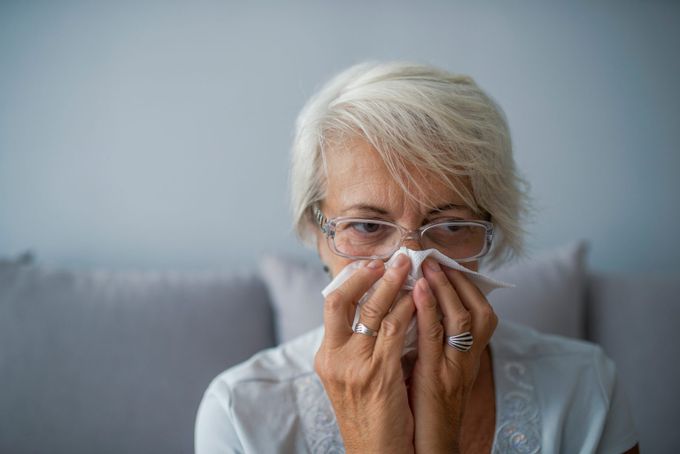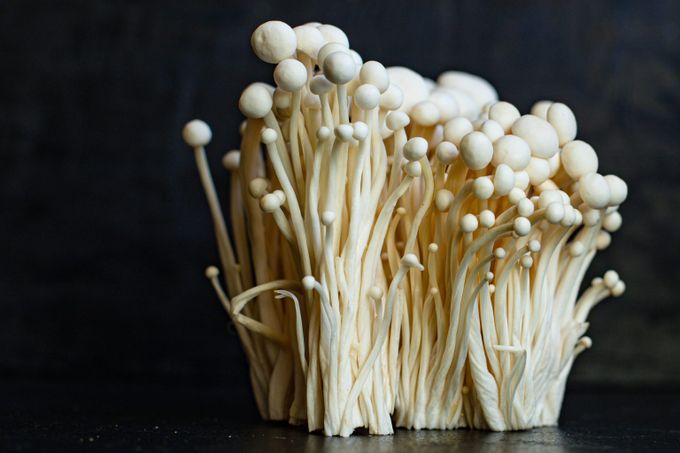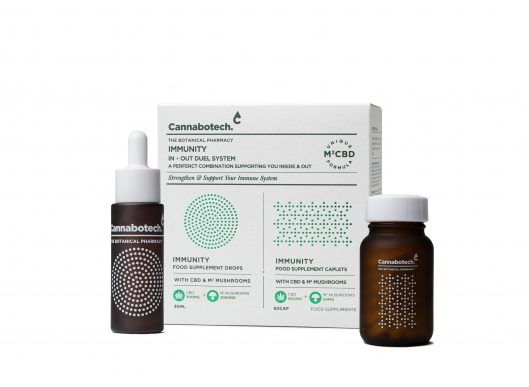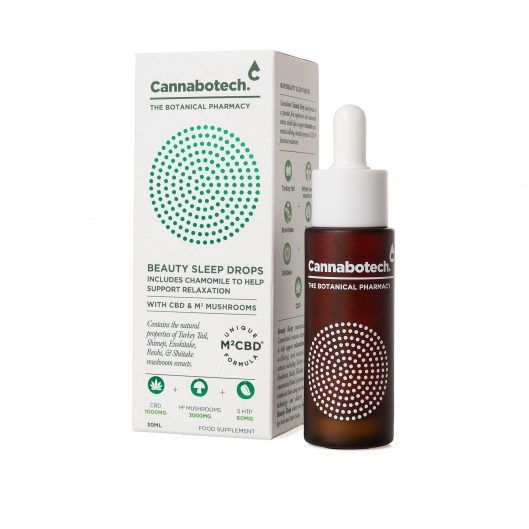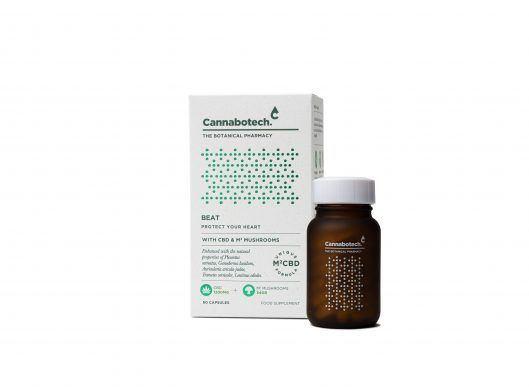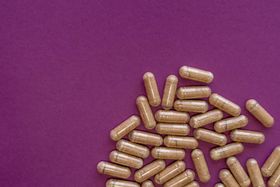Why Your Immune System Is Important in Winter (And How to Supercharge Yours)
Updated February 20, 2023.

Winter is a season of change, no matter which hemisphere you find yourself in. For many people across the globe, this means a change of climate, with stark temperature drops and increasingly wet or blustery weather.
And it’s no coincidence that, seemingly every time you leave the house during winter, you see a whole range of people suffering some kind of winter-related illness or ailment – whether they have pockets full of tissues and runny noses, or simply look rundown. In recent times, it’s hard to know what’s a common cold and what’s Covid – but, truth be told, when our immune system isn’t as strong as it should be, we’re susceptible to suffer from either.
But why are we more likely to get ill in winter? It’s the question on everyone’s lips right now, as we head (slowly) towards spring and away from the clutches of the cold. In a bid to answer that question, we’ve delved deep into the science behind the dreaded winter cold (or worse) to offer up some advice – and help keep you safe.
Why Do We Get Ill in Winter?
The idea that winter has its own illnesses – or can worsen certain illnesses – has been circulating, like a bad cold, since before the birth of Christianity. After all, it was Hippocrates who, way back in 400 BC, said the words:
And if we’ve learnt anything from the father of medicine, it’s that he’s mostly spot on – and modern science might agree. Winter definitely has its own thing going on when it comes to colds, flus and more. Here’s what happens in winter to increase our chances of illness:
Our Vitamin D Levels Drop
As vitamin D is essential for your immune system to work properly, it’s a concern that vitamin D levels drop in winter. But it shouldn’t come as a surprise – our bodies create vitamin D from direct sunlight on the skin, and sun exposure is greatly reduced in winter.
We Breathe in Cold Air
A study conducted by British researchers has suggested that the cold, dry air that rushes into our nasal passages during winter reduces the immune response in that area, essentially lowering our guard and letting infection in.
We Spend More Time Indoors
As the temperature drops through autumn and into winter, people move indoors and start to gather in enclosed spaces – creating the perfect breeding ground for viruses, and increasing the likelihood of their transmission. This is why, throughout the Covid pandemic, we’ve been encouraged to open windows in enclosed public spaces – and why restaurants in some countries could only offer outdoor service.
Low Temperatures Increase Our Blood Pressure
Back in 2009, French researchers found that cold weather may increase our systolic blood pressure, especially in those 80 and over. They suggested that the cold could cause a “fight or flight” response, with a faster heart beat and the restriction of blood vessels causing elevated blood pressure.
Reduced Daylight Can Trigger SAD
The exact cause of SAD (Seasonal Affective Disorder) isn’t known for certain, but reduced sunlight in the winter may cause a change in brain chemistry which may, in turn, provoke the onset of SAD. And, like depression, Seasonal Affective Disorder takes its toll on the immune system, which makes the fight against infection more difficult.
How to Boost Your Immune System
When it comes to staying protected in winter months, there are easy ways to give your immune system a boost, and get healthy ahead of springtime.
Get Plenty of Sleep
- Try not to use your mobile the closer you get to bedtime. The blue light that some devices emit can disrupt your sleep pattern.
- Aim for 7-9 hours of sleep a night.
- Enjoy darkness – it helps regulate your body’s circadian rhythm. When your circadian rhythm or sleep-wake cycle are out of kilter, it may negatively affect your mental health and may make you more likely to suffer from SAD (Seasonal Affective Disorder)
- Talk to your GP about any sleep issues you may have.
Work on your sleep with us! Our Beauty Sleep drops contain 5-HTP – a naturally occurring amino acid, thought to help improve serotonin levels in the brain. This may help lessen anxiety, improve mood and aid a good night’s sleep.
Manage Your Stress Levels
- Get 30+ minutes of exercise, at least 2-3 times a week.
- Try meditation or meditative activities like yoga and deep breathing exercises.
- Try therapeutic activities, like painting or creative writing.
- Talk to your GP about safe ways to reduce or manage stress.
Work on relaxation with us! Our Relax drops contain lavender extracts, which are thought to help calm the nervous system by reducing heart rate and blood pressure. Like all our products, they also contain premium, pharmaceutical-grade CBD and a precise blend of functional mushrooms.
Stock up on the Good Stuff
- Our Immunity drops and capsules use premium, pharmaceutical-grade CBD to target the body’s endocannabinoid system, and functional mushrooms to target the immune system – for a powerful, supercharged effect. Keep reading to learn more!
- Eat plenty of fruits and vegetables – at least 5-7 portions per day.
- Vitamin D and zinc are particularly good for protecting and boosting immunity.
- It is thought that CBD has the potential to aid our immune systems and reduce inflammation – read on!
- Talk to your GP before introducing supplements into your diet.
The Role of Cannabinoids, CBD and Functional Mushrooms in Immunity
Let’s get super scientific for a minute.
Cannabinoids
There’s quite a lot of evidence to suggest that cannabinoids may help reduce inflammation, as they can modulate the function and secretion of cytokines from immune cells. (FYI, cytokines are small proteins that are important in cell signalling). Indeed, our body’s endocannabinoid system is thought to control pain and immune system modulation, as well as possibly helping regulate movement, memory, learning, appetite, body temperature and neuroendocrine secretion. Research even suggests that cannabinoids play a role in the balance between neuroinflammation and neurodegeneration.
CBD
There are many types of cannabinoids, but two are particularly well known: Cannabidiol (CBD) and delta-9-tetrahydrocannabinol (THC). We don’t use THC, which is illegal in most countries across the world due to its hallucinogenic properties. But CBD, with no hallucinogenic associations, is legal in many countries and has a strong scientific following, thanks to its ability to promote homeostasis – ie. to achieve balance – in the body. It interacts with receptors in the nervous system, which can help manage stress and anxiety, and help tackle both restlessness and sleeplessness.
And guess what? There’s even talk of CBD helping to prevent COVID-19. It’s early days for anyone to make such a hefty claim, as it’s not clinically proven – but researchers are requesting a clinical trial to try to prove the theory! You can read about it here.
Functional Mushrooms
All the sleep, vitamins, vegetables and CBD might be exciting, but there’s another player in the immunity-boosting game. Enter: the functional mushroom. Also known as medicinal mushrooms, functional mushrooms are a hugely untapped source of immune support. They contain an abundance of antioxidants and anti-inflammatory properties – which is why we use so many functional mushrooms, depending on the solution we’re looking to give you.
Turkey Tail, for example, is a key mushroom for an immunity boost. This is thanks to its high content of a compound called polysaccharide-K (PSK), which is thought to help stimulate the immune system. Many health websites and experts list Chaga, Cordyceps and Lion’s Mane as the top three medicinal mushrooms for immune support – and we use those, too!
Want to discover more functional mushrooms? Check out all the incredible ingredients that we add to our health-supporting products.
All this is precisely why, at Cannabotech, we invested years of research into developing our products. We work on helping you prevent illness, stress and the like in the first place, as well as helping you tackle it if and when it arises. For us, “prevention is better than cure” – a quote attributed to many, from the goddess Hygiene to Dutch philosopher Desiderius Erasmus. And there’s a reason this adage is so well known – try our solutions and you might see why.
Boost Your Immunity With Cannabotech
- Immunity capsules and drops As well as the unique M2CBD formula (CBD plus functional mushrooms) we use in all our products, our Immunity products also include zinc, to further look after your immune system. Our Immunity capsules won ‘Best Immunity Supplement’ at Hip and Healthy’s 2022 awards! The Immunity capsules and drops even come as a Dual System bundle, helping you save money while protecting your health.
- Beauty Sleep drops Proper rest builds immunity, and allows your body to repair and prepare its defence against those pesky invaders. Plus, all your favourite influencers love it (just ask @whoisthatlondonmum).
- Beat capsules and drops And if it’s your cardiovascular system you’re looking to protect, you might be interested in our Beat drops, which contain thiamine. Also known as thiamin and vitamin B1, thiamine helps reduce your risk of heart disease. It aids the production of acetylcholine, enabling messages to pass between nerves and muscles, which helps your heart to work as it should.
Important! We always advise you to talk to your GP before making changes to medication, habits or lifestyle.
Info Sources, Further Reading and Useful Links
In no particular order…
- Hippocrates: www.nationalgeographic.com/science/article/coronavirus-why-cold-winter-weather-makes-it-harder-to-fight-respiratory-infections
- Cold air: https://www.health.harvard.edu/staying-healthy/out-in-the-cold
- Blood pressure: https://www.health.harvard.edu/staying-healthy/out-in-the-cold
- SAD: https://www.onemedical.com/blog/get-well/seasonal-affective-disorder
- Cannabinoids as modulators of function and secretion of cytokines from immune cells: www.sciencedirect.com/science/article/pii/S0165572805001608
- ‘Cannabinoids may help regulate immunity: It is likely that the cannabinoid system, along with other neuroimmune systems, has a subtle but significant role in the regulation of immunity and that this role can eventually be exploited in the management of human disease’: https://www.hindawi.com/journals/prm/2001/326867/
- Medicinal mushrooms: https://www.healthline.com/health/food-nutrition/best-medicinal-mushrooms-to-try#for-inflammation
- There’s quite a lot of evidence to suggest that cannabinoids may help reduce inflammation, as they can modulate the function and secretion of cytokines from immune cells : J. Ludovic Croxford, Takashi Yamamura, Cannabinoids and the immune system: Potential for the treatment of inflammatory diseases?, Journal of Neuroimmunology, Volume 166, Issues 1–2, 2005, Pages 3-18, ISSN 0165-5728, https://doi.org/10.1016/j.jneuroim.2005.04.023. (www.sciencedirect.com/science/article/pii/S0165572805001608)
- Indeed, our body’s endocannabinoid system is thought to control pain and immune system modulation, as well as possibly helping regulate movement, memory, learning, appetite, body temperature and neuroendocrine secretion : J. Ludovic Croxford, Takashi Yamamura, Cannabinoids and the immune system: Potential for the treatment of inflammatory diseases?, Journal of Neuroimmunology, Volume 166, Issues 1–2, 2005, Pages 3-18, ISSN 0165-5728, https://doi.org/10.1016/j.jneuroim.2005.04.023. (www.sciencedirect.com/science/article/pii/S0165572805001608)
- Research even suggests that cannabinoids play a role in the balance between neuroinflammation and neurodegeneration: Radu Tanasescu, Cris S. Constantinescu, Cannabinoids and the immune system: An overview, Immunobiology, Volume 215, Issue 8, 2010, Pages 588-597, ISSN 0171-2985, https://doi.org/10.1016/j.imbio.2009.12.005. (https://www.sciencedirect.com/science/article/pii/S0171298509001880)



